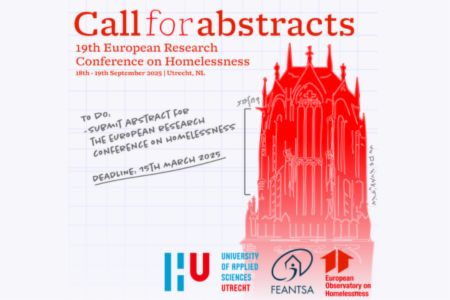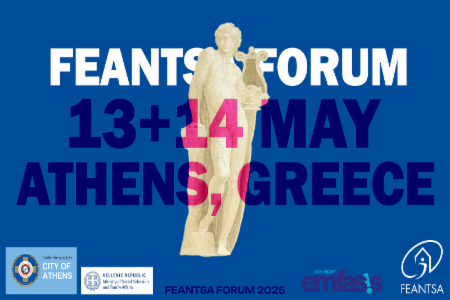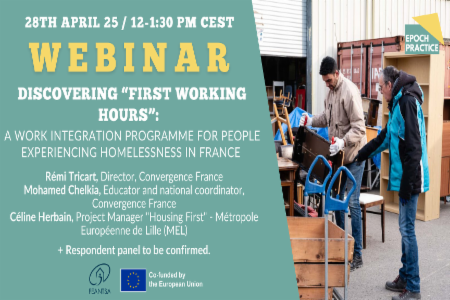Building Bridges: How the LGBTIQ and Homeless Sectors can Work Together
Access the full report here
This report is based on a study session at the Council of Europe which brought toether key actors in the fields of homelessness and LGBTIQ issues. This study session marks the first FEANTSA Youth study session coordinated by three partners FEANTSA Youth, ILGA-Europe & True Colours United.
This study session has 6 objectives:
- Raise awareness about Human Rights related to the intersection of youth homelessness and identifying as LGBTIQ. Understanding the Human Rights situation of LGBTQI people in different countries, discuss human rights in reality, are there specific human rights for LGBTQI people
and examining homelessness form human rights perspective. Participants offered: advocacy for LGBTIQ rights, working with political level, sharing national situations in less advanced countries. - Raise awareness about homelessness. Exploring the i) definitions of homelessness across Europe, ii) how the sector operates, iii) how young people experience homelessness and iv) changes within the sector. Participants will also structurally understand homelessness and share their different experiences and how they understand the needs of homeless people to find creative and new approaches to prevent and end homelessness and increase collaboration of stakeholders.
- Raise awareness about LGBTIQ identity. Understanding experiences of LGBTIQ youth, the importance of pronouns and how oppression impacts vulnerable LGBTIQ Youth. Working on trauma and crisis situations, building trust, safe spaces, activism, working in homophobic contexts, supporting multiple vulnerability, access to special health services for LGBTQI persons, advocacy work, working with queer homeless youth, running an LGBTQI organisation.
- Understanding the intersection of LGBTIQ youth experiencing homelessness in general and in particular learning the role your organisation and function has in preventing and ending LGBTIQ youth homelessness. How to create safe spaces, outreach work, proper communication, dialogue with institutions, research and data available, the issue of church run organisation's services, funding, partnerships, cultural perspectives, criminalisation.
- Learn from best practices across Europe in ending LGBTIQ youth homelessness including peer supports, providing services, building intersectional approaches, the recovery movement, developing safe spaces, special communication, effective training tactics, reinforcing social network, successful projects, accessing funding, learning from failures and the value of strategic litigation.
- Develop partnerships with other participants during the study session. A special effort has been made to include both LGBTIQ and homeless organisations operating in the same context with the objective that it will lead to closer partnerships beyond the study session. The session will facilitate networking, learning from each other, identifying synergies, building trust, sharing good practices, sharing alternative fundraising methods and resources, thinking of possible projects and partnerships and understanding the limits of collaboration.





